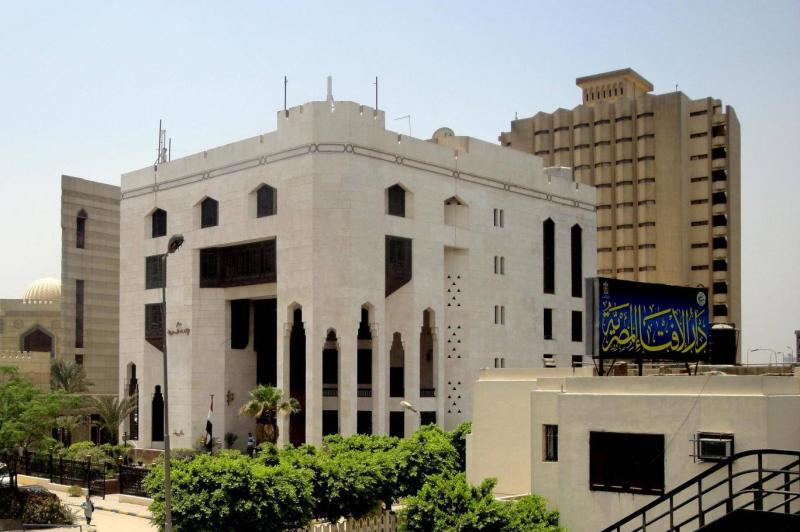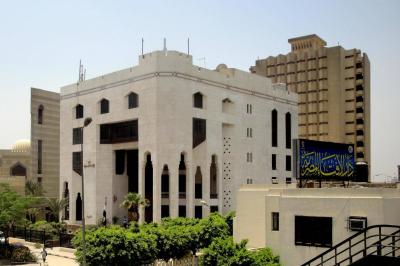In December 2015, amid the suffering experienced by the entire Islamic world due to terrorism and extremism, the Egyptian Dar Al-Iftaa announced the establishment of the General Secretariat of the Boards and Authorities of Fatwa Worldwide, a general umbrella uniting official fatwa institutions from around the globe. This announcement was made in light of an urgent need for a discourse capable of addressing the challenges of the present and future. The General Secretariat was initially composed of representatives from more than 35 muftis representing their countries from various continents, a number that has increased over the following years to exceed one hundred muftis and fatwa institutions. The General Secretariat is tasked with fulfilling its name, which accurately reflects its role as it serves as the central authority of fatwa institutions in the Islamic world.
It undertakes three distinct yet vital roles: the traditional inherited role of being an umbrella for scholarly institutions, a new role that is an essential duty of scholarly institutions in our time, and another forward-looking role aimed at envisioning a better future for the Islamic nation and the world as a whole.
The traditional inherited role emphasizes that the General Secretariat is a scholarly body unifying fatwa institutions, consisting of scholars from various scientific disciplines. This allows for the addressing of social, economic, and other community issues while interacting with these problems through the principles of sacred law and providing legal rulings, ensuring the attainment of Islamic Sharia objectives. This traditional role is crucial for achieving the consensus sought by scholars and serves as the optimal path to mitigate the risks of individual fatwas, particularly from non-specialists, which have caused numerous societal ills and propagated misconceptions leading to the suffering of the Arab and Islamic nations over the past decades.
Additionally, while promoting a unified discourse and common principles, the Dar Al-Iftaa has strengthened the role of official fatwa, reflected prominently in the monumental encyclopedic project undertaken by the Secretariat titled "The Compilation of Notable Muftis." This project included the translation of prominent fatwa figures in the modern era, starting from Egypt and moving on to the Maghreb, then to Arab countries in Asia, detailing the methodologies and scientific foundations of various muftis.
The new role reflecting the duty of the time involves combatting the most abhorrent forms of extremism, which merges both intellectual extremism and threats to security and peace stemming from armed organizations, rooted in extremist ideologies emanating from various sources such as the terrorist Muslim Brotherhood and its offshoots. The Egyptian state has defended the safety of its people with all its rational capacities against these extremist groups, but there was an urgent need for an intellectual confrontation commensurate with the current situation to diagnose the ideological illness of extremist groups. The Secretariat has effectively executed this role from the outset, as exemplified in their scientific project aimed at dismantling the fatwas and ideas of extremism—a project intended to produce a scientific encyclopedia in various languages that dismantles, discusses, and responds to extremist religious ideas.
The Secretariat has also established several centers focused on monitoring extremist thought and its transformations, including the Salam Center and the Observatory for Radical Fatwas and Opinions. Regarding its future-oriented role, the Secretariat has taken it upon itself to renew religious discourse, striving to present an image reflective of our noble religion, a discourse that preserves the objectives of Islamic Sharia and considers the variable factors of time, place, conditions, and individuals in changing fatwas. To this end, the General Secretariat has begun to establish representative offices worldwide, serving as branches of the main headquarters in Cairo, participating in the development of the fatwa process in these countries, and contributing to the dissemination of the Secretariat's message.
Moreover, through its forward-looking role, the General Secretariat has recognized the threats surrounding the world that seek to destroy the moral fabric of society, exemplified by atheistic campaigns aiming to dismantle the gender identity of generations and promote relativism in fixed morals upheld and preserved by all religions.
These three roles of the Secretariat have crystallized through annual scientific conferences organized by the Secretariat, such as the 2017 conference on "The Role of Fatwa in Updating Societies," the 2021 conference on "Fatwa Institutions in the Digital Age," and the 2022 conference on "Fatwa and Sustainable Development Goals." Following the vision of last year's conference titled "Fatwa and the Challenges of the Third Millennium," and within the framework of the General Secretariat's role in anticipating future challenges, the General Secretariat of the Boards and Authorities of Fatwa Worldwide will hold its ninth international conference on July 29-30, 2024, under the title "Fatwa and Moral Construction in a Rapidly Changing World," under the esteemed patronage of President Abdel Fattah El-Sisi of Egypt.
This year's conference is set to be an important platform for discussing the role of fatwa in enhancing ethics and human values in an increasingly fast-paced world. The aim is to raise awareness of the importance of sound fatwa in solidifying ethics and human values, discuss the role of fatwa in confronting contemporary challenges, enhance cooperation between fatwa institutions and international and regional organizations, and ultimately produce practical recommendations to reinforce moral construction within societies.




